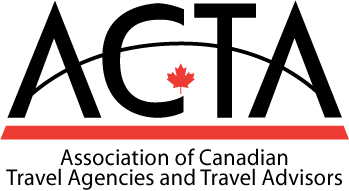Denied boarding: what are the rights of your clients?
Paxnews.com, André Désiront
The violent removal of a United Airlines passenger from the plane as a result of overbooking created a real public furor over the past couple of days. It also caused Transport Canada to waken after a long period of slumber, which helps ACTA’s cause. Canada is the only G7 country that does not have a Passenger Bill of Rights. ACTA is advocating for this to be updated and is working with government to get this in place.
A spokesperson for Marc Garneau, Minister of Transport, announced that strict rules in cases of forced removal due to oversold flights – ‘bumping’ in industry jargon – will be included in future legislation on the rights of passengers that’s been on the cards since last autumn.
PAX has provided details of the compensation that your customers can expect in cases of a cancelled flight, denied boarding, delays and loss of luggage. FULL STORY
In Canada:
In Canada, lawmakers refused to adopt clear legislation, giving in to pressure from airline industry lobbyists who raised questions of competition.
In 2009, the Department of Transport published ‘Air Passengers’ Rights in Canada’ which is in fact a ‘code of conduct’ to which airlines subscribe on a voluntary basis. Essentially, this stipulates that companies must provide ‘reasonable’ – but not pre-determined – damages to affected travellers. An arbitration service is available.
The amounts are set by the airlines themselves and published in the contract, the terms of which are generally reproduced at the bottom of the e-ticket and on each carrier’s website – but good luck finding them!
How to proceed
Aggrieved passengers must submit a complaint to the carrier. If they have not received a response within 30 days, or if they are not satisfied, they can file a complaint with the Transport Office, by completing an online form - https://services.otc-cta.gc.ca/eng/air-complaints.
In such a case, the Office organizes a mediation. If the complainant is still not satisfied, he or she may ask the Board to decide, as part of a ‘formal decision-making process.’ Please refer to https://travel.gc.ca/air/air-passenger-rights?_ga=1.268070344.756343238.1491934785.
However, be advised! Passengers travelling on a Canadian airline departing Europe and the United States are protected by European or American legislation. Therefore, a passenger who is travelling from Paris to Montreal on a European or Canadian flight has the right to compensation determined by the European Union. Going in the other direction, only passengers on European airlines are protected.
For example: a traveller boarding in Montreal on an Air Canada or Air Transat flight towards Paris won’t be protected by European regulations if he or she arrives more than three hours late. If travelling by Air France or Corsair, though, he or she will have the right to agreed compensation of 600 euros.
On the other hand, when travelling from Paris – or another European city – towards Canada, European regulation applies the same on Air Canada, Transat and others as it does on European airlines.
According to American consumer associations, only two per cent of passengers who are victims of overbookings, delays, or lost or delayed baggage lodge complaints and are compensated in due form.
Of course, it’s not always easy to complain to the European Union. A dedicated site offers a fee-based complaint tracking service; in case of success, the complainant cedes 25 per cent of the compensation. If the complaint is rejected, no fees are charged. http://flightclaim.ca/
